Every activity and initiative that the Georgia Council on Developmental Disabilities (GCDD) engages in starts with data. Understanding how it’s collected and used can be a powerful tool to help us move forward in advocating for people with developmental disabilities in Georgia.
GCDD is authorized under Public Law 106-402, the Developmental Disabilities Assistance and Bill of Rights Act Amendments of 2000, also known as the Developmental Disabilities Act or the DD Act. The organization is funded and protected by this federal law. All states and territories have a council on developmental disabilities similar to GCDD. When funding is sent from the federal government to a state government, both the federal government and the state government are required to track how the money is being used and the impact that those funds are making in your community.
Data is important. It’s data that decides how much funding is allocated to specific states, for example GCDD’s funding is decided by the population of people with developmental disabilities in the state. Other states may receive more or less funding based on their state’s population. It’s data that helps support our advocacy efforts by persuading the legislature to hear our concerns. It’s data that helps us make our voices heard when we say people with developmental disabilities are being disproportionately impacted by COVID-19.
Additionally, any company or organization that receives money from the state, such as vendors and grant partners with GCDD, are required to report on how the money is spent and the impact of those funds on the developmental disability community in Georgia.
If you’ve engaged in activities and events with GCDD, you have likely been asked to participate in a survey or to share your story. These surveys collect important information about who is being served through these federal/state dollars. Surveys often include information about your relationship to a person with developmental disabilities, where you live, your race, your gender, if you have gained knowledge or resources, or have increased your advocacy or decision-making abilities based on the activities you have engaged in. Surveys also typically include how satisfied you are with a particular program activity. These surveys can seem formulaic, but the metrics are purposeful. They reveal the deliberate intention by the federal government, the state of Georgia, and GCDD to serve people across all racial groups, geographic areas, and genders. They also underscore the importance of developing programs and initiatives that truly make a difference in communities.
Additional information that is collected through GCDD staff and grant partners includes the number and outcomes of advocacy efforts, systems change measures, and public and media awareness around developmental disability experiences and systemic barriers.
It may seem dry or boring, and sharing data likely doesn’t elicit the same feeling you get when you’re directly connecting with a person, but participating in data collection is a very impactful way for you to make your voice heard. This is because the same way that funds flow down from the federal government, your voice—in the form of data—flows up to GCDD, the state, and the federal government.
GCDD applies an important ethical standard to data collection. It is “no data without stories, and no stories without data.” One is never sufficient without the other. This ethic helps to ensure that data in the form of numbers and metrics (also called quantitative data) isn’t misrepresenting reality. Stories (a form of qualitative data) ensure that the proper context is given to what we know from the data available in the form of numbers and metrics.
Data is used continuously to evaluate what efforts are being funded, how they will last, what needs are present in the community that aren’t being met, and what new efforts need to be funded to advance GCDD’s work on behalf of people with developmental disabilities. Every year, GCDD submits an annual report, called a performance progress report, to the Administration on Community Living (ACL), a federal agency that directs initiatives aimed at supporting people with developmental disabilities. During this process the ACL is also reviewing and analyzing reports from the other 55 state and territory developmental disability councils. In doing this, the ACL can see challenges that are unique to Georgia, affect specific regions, or are universal across most or all states.
Data may not seem very exciting, but know that by participating in activities and advocacy, working individually or together in coalitions, you are creating measurable change every day. Those activities and that change is being measured and reported on. Because of that, you are part of a much bigger movement than you may realize. When you participate in work that supports people with developmental disabilities in Georgia, you are a moving, living, breathing embodiment of the Developmental Disabilities Act in action.
The Developmental Disabilities Act is protected by law, and this means the work that we’re doing is also protected. But it’s always important to keep moving forward, to take nothing for granted, and to keep making positive change for people with developmental disabilities. The information that GCDD, grant partners, the state, and the federal government collect recognizes the important work you are doing on the ground. So, keep up your great work, and keep sharing your experiences through data.
